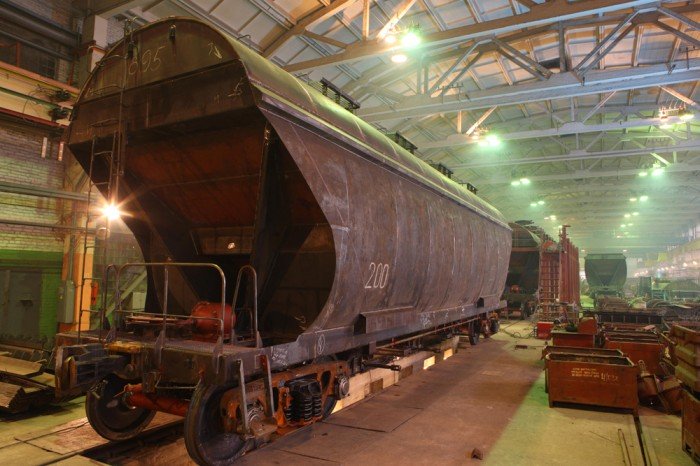The volume of construction of freight cars in Russia decreased in eight months of 2020 by 33.2% compared to the same period last year, to 34,148 units, according to market participants. In absolute terms, the production of gondola cars, the most massive rolling stock, decreased most noticeably: to 12,982 units compared to 26,107 units a year earlier (more than twice). But market participants expect high demand for the universal fleet to recover in the medium term.
From January to August, about 7.9 thousand platforms of various types, 6.5 thousand hoppers, 3.4 thousand various tanks, 3 thousand covered wagons and about 340 dump cars were also built in Russia. According to market participants, the three largest manufacturers of freight cars in Russia in January-August included the United Carriage Company (UWC), which controls the Tikhvin Freight Car Building Plant in the Leningrad Region, which built 8,885 different cars, RM-Rail, which controls the plant Ruzkhimmash in Mordovia, which built 7,217 cars, and Uralvagonzavod (UVZ), with 6,564 units of rolling stock. The enterprises themselves refused to detail the structure of production.
The Executive Director of the Association of Carriage Builders (OBC) Yevgeny Semenov believes that from 2020 a period of low demand begins on the car building market, which may last for the next 10 years. According to him, old cars prevail in Russia: over 1 million units. The volumes of their write-off have decreased to the lowest values for the last six years, in the next five years they will not exceed 25-27 thousand cars per year. It is expected that the demand for freight cars will begin to recover not earlier than 2026. Thus, during these years the industry will be in crisis if the necessary measures are not taken to support it from the state, Semenov is sure.
Taking into account the drop in traffic volumes and a large number of rolling stock, set aside from traffic, specialized cars will be in demand, a source in the car building market is sure. “This is the transportation of chemical goods, fertilizers, food. In this regard, tanks will be in demand for the transportation of various chemical cargo, including for oil products, covered wagons with an increased body volume, platforms of various modifications and small series wagons intended for the transportation of highly specialized cargo, such as hopper-dispensers [used for track works, for example, for spilling the track superstructure with ballast during repair] and pellet carriers, ”the source said.




